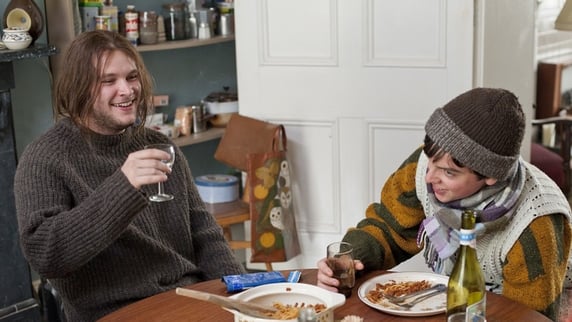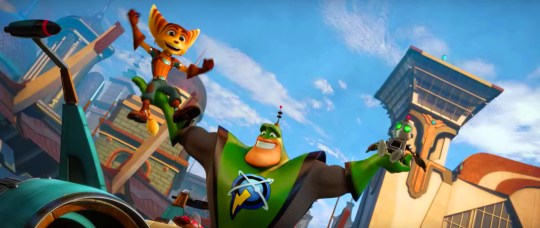 Conor (Ferdia Walsh-Peelo) is a teen whose family is in a financial slump, so they move him to a new Catholic school called Synge Street, full of fights, bullies, and an intimidating, rule-worshipping headmaster (Don Wycherley). Underneath Conor's shy exterior is a clever, ambitious mind, so he becomes the bravest dork and chats up the cool, aloof Raphina (Lucy Boynton) across the street. She tells him about her modeling career; he asks if she'd be interested to star in one of his band's music videos, and she accepts. The only problem? Conor doesn't have a band. So he rustles up a gang of misfits, borrows his older brother's (Jack Reynor) records, and with his band, Sing Street, enters this brand-new crazy world of new wave.
Conor (Ferdia Walsh-Peelo) is a teen whose family is in a financial slump, so they move him to a new Catholic school called Synge Street, full of fights, bullies, and an intimidating, rule-worshipping headmaster (Don Wycherley). Underneath Conor's shy exterior is a clever, ambitious mind, so he becomes the bravest dork and chats up the cool, aloof Raphina (Lucy Boynton) across the street. She tells him about her modeling career; he asks if she'd be interested to star in one of his band's music videos, and she accepts. The only problem? Conor doesn't have a band. So he rustles up a gang of misfits, borrows his older brother's (Jack Reynor) records, and with his band, Sing Street, enters this brand-new crazy world of new wave.Duran Duran, The Cure, The Jam, Motorhead - the film's entrenched into this golden age of British music (not to be confused with the golden ages of the British Invasion, New Wave of British Heavy Metal, Britpop, and Garage Rock Revival).
As Conor gets into a band, he ends up borrowing their style, both music and fashion. Sporting blue eye shadow and blond streaks, he uses a baritone croon through a funky, synth-laden Duran Duran rip-off called "The Riddle of the Model." How can you not love that title? As soon as he gets a hold of the Cure, Conor launches his black hair into the stratosphere, writing acoustic-driven "happy-sad" music.
You'd think these pastiches would get annoying, but I'll be damned if this isn't one of the best soundtracks I've heard in years. The kids are all extraordinarily talented, especially the rhythm section (Karl Rice on bass and Conor Hamilton on drums). Sing Street's set comes off as a sampler of the decade, a who's who of new wave without having to suffer through covers.
Sing Street is like other '80s family films - namely Back to the Future, The Goonies, Ferris Bueller's Day Off - in that it presents the characters realistically. The teens aren't stereotyped as thugs or romanticized as soda pop drinkers and conduits of lame jokes. Walsh-Peelo doesn't have quite the level of charisma as Michael J. Fox, but he's approaching it. Boynton is spunky, smart, and funny, sharing stellar chemistry with Walsh-Peelo. The rest of the band members have their time in the sun, making for great comic relief.
Jack Reynor is extraordinary as Conor's older brother, Brandon. As someone who obsessively lines his own shelves with pop culture and a wealth of records, I saw a bit of myself in him. The environment Conor lives in, one full of divorce and growing pains, discovery, passion, and rejection, is harsh, difficult to navigate. Brandon serves as Conor's most faithful member of his corner, constantly challenging and motivating him to be better. He's a character who's failed in his endeavors, so if he can push Conor to succeed and carve his own path, he'll feel vindicated in that regard.
My brothers don't want to start a band, but I can't help but feel that urge to watch over their growth: to help them avoid pitfalls or offer different perspectives in life in ways my parents can't. Director John Carney dedicates the film "for brothers everywhere," and that reminder to encourage and support the young men I love hit home.
With Sing Street, Carney reaffirms his proficiency in making music dramas. I love this more than Begin Again, and it seems entirely possible, like in 2014, that a John Carney film will make it to my top ten list at the end of the year. Sing Street is a charming, thoughtful coming-of-age film that packs heart, wit, and loads of style.
For those about to rock, I salute you.
Thank you all for reading. I'm the Man Without a Plan, signing off.






